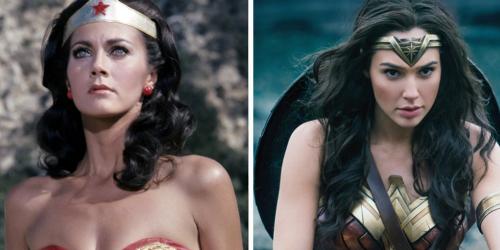In the city, she is the companion of Nabil Ayouch, director of Much Loved, in 2015, a film about the life of prostitutes in Marrakech that caused scandal and was banned from broadcasting in Morocco. In Razzia , her new film, Maryam Touzani plays Salima, free and transgressive woman. But this actress who breaks the screen is not just a muse. She is a co-writer, documentary filmmaker and soon director.
MC: You are an actress, screenwriter, director. What is your background?
I was a journalist at the International Film Guide , I wrote about cinema. And then, I wanted to tell my own stories. When I lost my father I was very close, I wrote my first fiction, a film about the place given to the woman during a mourning. From where this sequence, in Razzia , of the heroine on the tomb of his father. To me also religious came to say "Get up, you have no right!" I was sitting on my father's lap, no one has the right to force me to get up from his grave in the name of religion. Then there was Much Loved , and in the meantime, I made two documentaries, about the old Moroccan prostitutes and their relationship to God, and the little maids. I need to give voice to these invisible women. Next October, I will make my first feature film: the story of a single mother, 9 months pregnant, who wants to give her child to adoption, because like her, he has no place in the world. society.
MC: In Razzia too you wanted women to be at the heart of the film and the debates it raises ...
Yes because they are the hope in Morocco. And they need to reclaim their place, there is a real regression, things acquired are no longer. Education goes through the gold woman when one teaches his son that his sister has to do the dishes while sitting like a pasha on the couch, she is taught that she is worth less than him. It was therefore essential to show inspiring women. In Morocco, artists, activists, but also everyday women are fighting. The problem is that everyone is fighting in his corner, we do not have the strength we would have together. While we have the power to change society and stop the progression of this obscurantism that takes over and suffocates us.
MC: We see in the film, Islamist women demonstrating against the reform of the inheritance law that penalizes Moroccans ....
At the time of Much Loved when this unheard-of violence came out of nowhere, we did not expect it, the hardest was to see these many women, who condemned the characters of prostitutes that Nabil defended. I found that tragic. Women should stand up for women. I did not realize how hard the patriarchy was, how much they were under guardianship, unaware of their own chains. These are the same women we see manifesting in Razzia against the reform of the inheritance.
MC: There's a big scene in the movie where Salima, the heroine you're performing, is walking down the street in a tight, tight dress and getting insulted ...
It was cold, we were shooting in December, I went with the makeup artist in a cafe. On the way, a man stopped. He insulted me, and ordered me to go get dressed. The only difference with the movie scene is that I had it in front of me. I was able to tell him everything I had to say by looking him straight in the eye. It was a liberating moment. I understood that we were really rooted in the truth. Putting on a skirt may seem a trivial gesture, but it is not. To prevent yourself from getting dressed as you wish, is to confine you in a yoke. The man thought I was going to lower my head, ashamed, and leave, but in the end, he was the one who left. Raising a skirt can be a political gesture. For me, it is. Put a two-piece jersey where no longer wants women to wear it, too. Many friends have stopped smoking because the so-called modern men they have married forbid them just as they forbid them to work. To exercise control, '' I am the man who gives you the money ''.
MC: You show a schizophrenic society, its youth is plugged into social networks and pornography but girls are forced to be virgins at the wedding ....
Our society is obsessed with virginity. The honor of the family and the woman goes through his body. This is still the norm because people are becoming more and more religious. There is a real torn between modernity and conservatism that confront each other every day. I think that the evolution of Moroccan society goes through friction, we do not move smoothly.
MC: Salima is going to see an "angel maker" who gives her a special massage to abort. Is it common?
Yes, it is a very common practice and it is dramatic. Abortion is prohibited in Morocco. There are between 200 and 600 illegal abortions a day, and dozens of women who die. We use herbs mixed with chemicals, knitting needles, massages ... Illegal sex outside marriage are punishable by one year in prison. To be single and pregnant is to be guilty. I learned that I was pregnant the day before shooting this scene. Our son (the father is Nabil Ayouch) is 7 months old today. Reality and fiction have mingled very beautifully. This child Salima is waiting for in the film brings hope. The education we are going to give our son will make him a man who will value women. He already has a good example with his father.
MC: What do you say to the French women who wear the veil?
I think there is room for everyone but with respect for each other. The essential thing is not to impose anything. In Morocco, I put myself in a bikini, if next to me the woman in burkini does not bother me, and her husband does not glare at me, it's fine. In the next month of Ramadan on the public beach, I want to undress and put myself in panties, just to see the reactions. It's about pushing the lines, to transgress, it's the only way to win.



